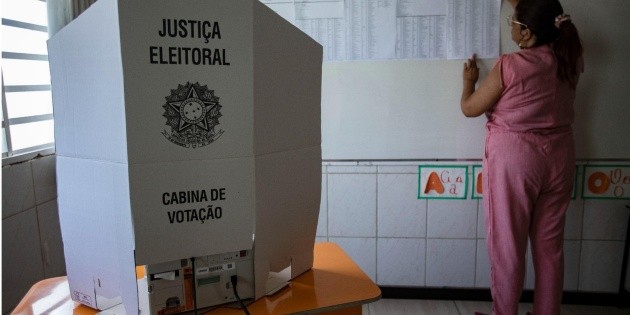The head of Brazil’s electoral authority rejected the request of President Jair Bolsonaro and his political party to annul the votes cast in most electronic voting machines, which would have changed the result of the October 30 elections.
Alexandre de Moraes had issued a previous ruling that implicitly stated that the Liberal Party, to which Bolsonaro belongs, could lose out by impeachment. De Moraes had made the analysis of the petition conditional on the protesters presenting a new report that included the results of the first round of elections, held on October 2, in which the Liberal Party won more seats in both legislative chambers than any other party. , and gave them a period of 24 hours.
Hours earlier on Wednesday, the president of the Liberal Party, Valdemar Costa, and the lawyer Marcelo de Bessa, said at a press conference that they would not present any new report.
“The utter bad faith of the plaintiff’s bizarre and unlawful request…was demonstrated, both by the refusal to amend the initial request and by the complete absence of any evidence of wrongdoing and the existence of a wholly fraudulent narrative of the facts,” he wrote. De Moraes in his decision hours later.
He also ordered the suspension of federal funds for the Liberal Party coalition until a fine of 23 million reais ($4.3 million) is paid for engaging in bad faith litigation.
On Tuesday, De Bessa filed a 33-page petition on behalf of Bolsonaro and Costa citing a software bug in most of the machines in Brazil – they lack individual identification numbers in their internal records – arguing that all the votes they compiled were to be annulled. De Bessa said that would give Bolsonaro 51% of the remaining valid votes.
Neither Costa nor De Bessa have explained how the problem could have affected the election results. Independent experts consulted by Globe Live Media said that although the problem was discovered recently, it does not affect reliability, and that each voting machine remains easily identifiable by other means. In his ruling on Wednesday, De Moraes made the same point.
He also wrote that the contested vote appeared aimed at encouraging anti-democratic protest movements and creating riots, and ordered Costa and the consultant hired to conduct the assessment to be investigated.
“De Moraes’s message to the political class is: the game is over. Questioning the result of the elections is not fair game, and the people and institutions that do so will be severely punished,” said Maurício Santoro, a professor of political science. at the State University of Rio de Janeiro.
At Wednesday’s press conference, Costa said his intention is simply to prevent the results of the 2022 vote from haunting Brazil in the future.
The electoral authority ratified the victory of Bolsonaro’s arch-rival, former leftist president Luiz Inácio Lula da Silva, on October 30, and even many of the president’s allies recognized the results immediately. Pro-Bolsonaro protesters in various cities across the country have consistently refused to accept them, particularly as Bolsonaro has refused to concede defeat to him.
For more than a year, Bolsonaro was claiming that the electronic voting system in Brazil was ripe for fraud, although he never presented proof.
Brazil began using electronic voting in 1996, and election security experts consider it less secure than hand-marked paper ballots because there is no auditable record of the vote. But national and international experts have closely monitored the system and have never found evidence that it was used for voter fraud.

